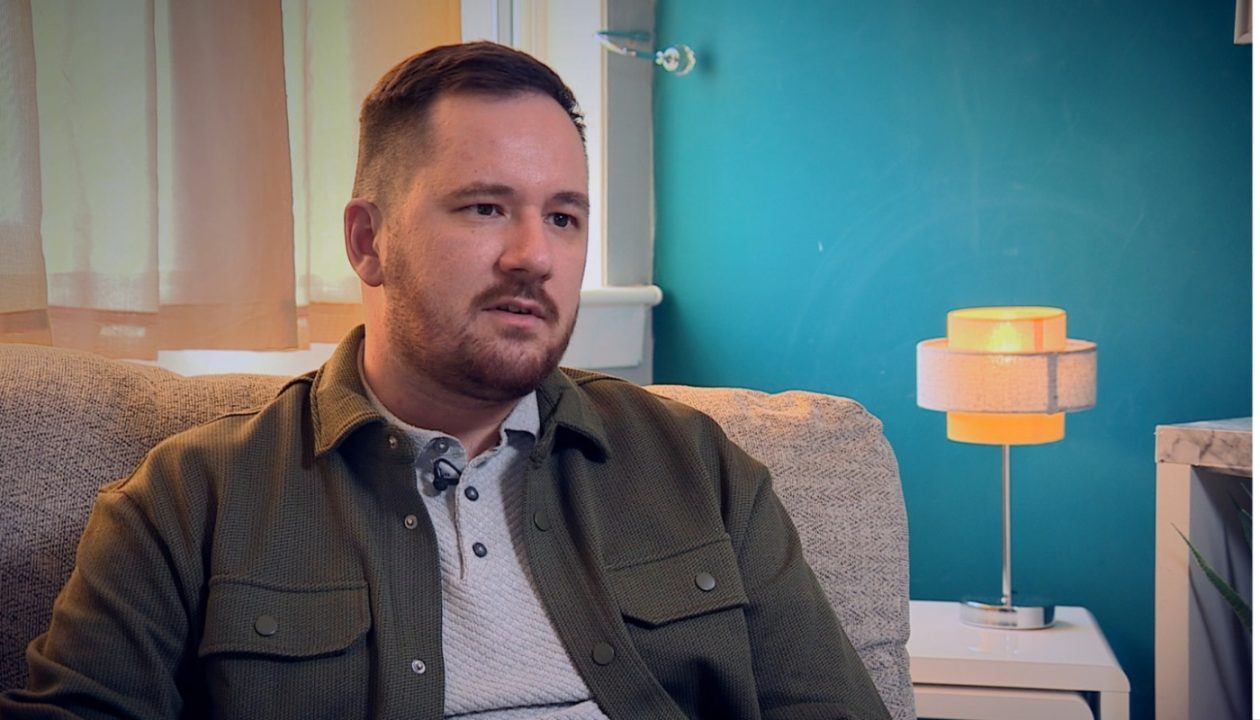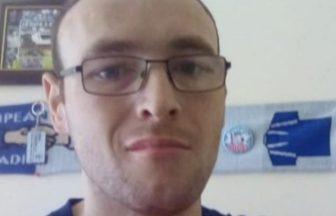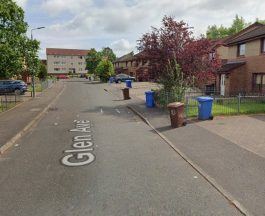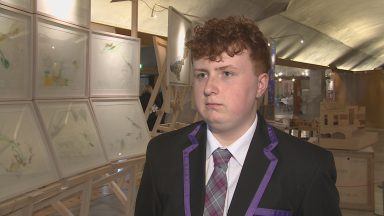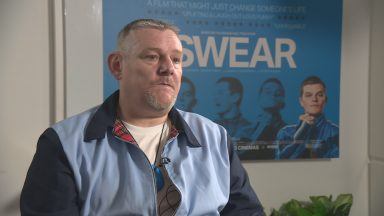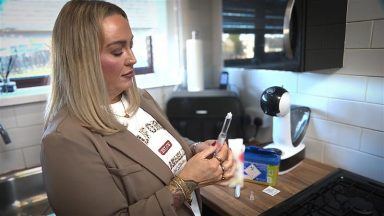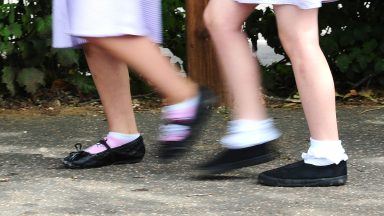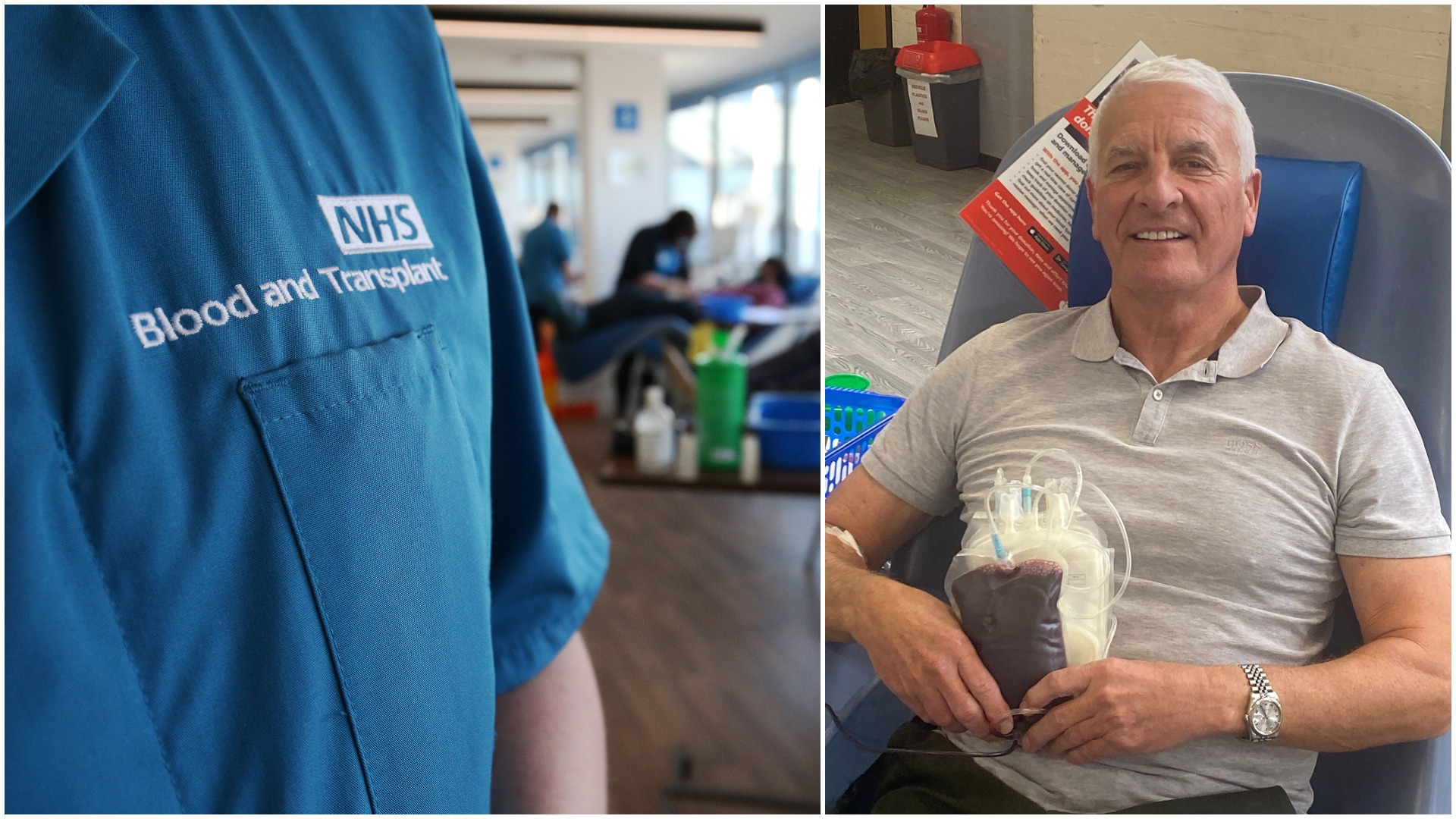“I’ve always kind of felt a bit different to everybody,” says Sean Burchill.
“I’ve felt like something, not so much wasn’t right but, just wasn’t clicking.”
His experience is one shared by many.
It’s just 16 years since the neurodevelopmental condition of ADHD was officially recognised in adults.
Since then, there has been a surge in the number of people seeking assessment for a diagnosis, with NHS Greater Glasgow and Clyde, the country’s biggest health board, reporting a 1000% increase in referrals over the past three years.
With symptoms ranging from difficulty with concentration to hyperactivity, ADHD can present differently for everyone.
You cannot develop ADHD as an adult because it is a developmental disorder, meaning that it presents during childhood, but symptoms may not become obvious until later in life.
Sean, who is a father of three, said he struggled to fit in as a child due to his difficulty with focus and fidgeting.
“I would sit with the books in front of me, but I would never know where to start or what I needed help on,” he said.
“It was quite a struggle and I ended up just leaving school halfway through fifth year because it just felt like pointless being there.”
For a long time, Sean was told by doctors the issues he was facing were likely due to poor mental health. However, nothing seemed to explain why he was constantly restless, had physical ticks, and struggled at work.
After taking a test and doing research on ADHD, Sean said: “I’ve been looking for these answers my whole life.”
However, when he decided to speak with a doctor about ADHD he struggled.
“Her response was basically, ‘Do you want a label, what do you want?’ And I didn’t really know what to expect. It was the last thing I would have expected somebody to say to me.”
As a result, Sean made the decision to speak with a private clinic.
However, his private diagnosis does not allow him to seek ADHD medication on the NHS, meaning he would have to go back to the bottom of the waiting list.
“The GP won’t accept shared care,” he said. “And to be honest, I don’t think I really want to go down the route of being assessed by another doctor.
“It’s quite gruelling, and it’s quite time-consuming. And you know you’re bringing up things from childhood, your past… You’re kind of reliving your struggles over and over and over again.”
‘I can ignore really obvious things’
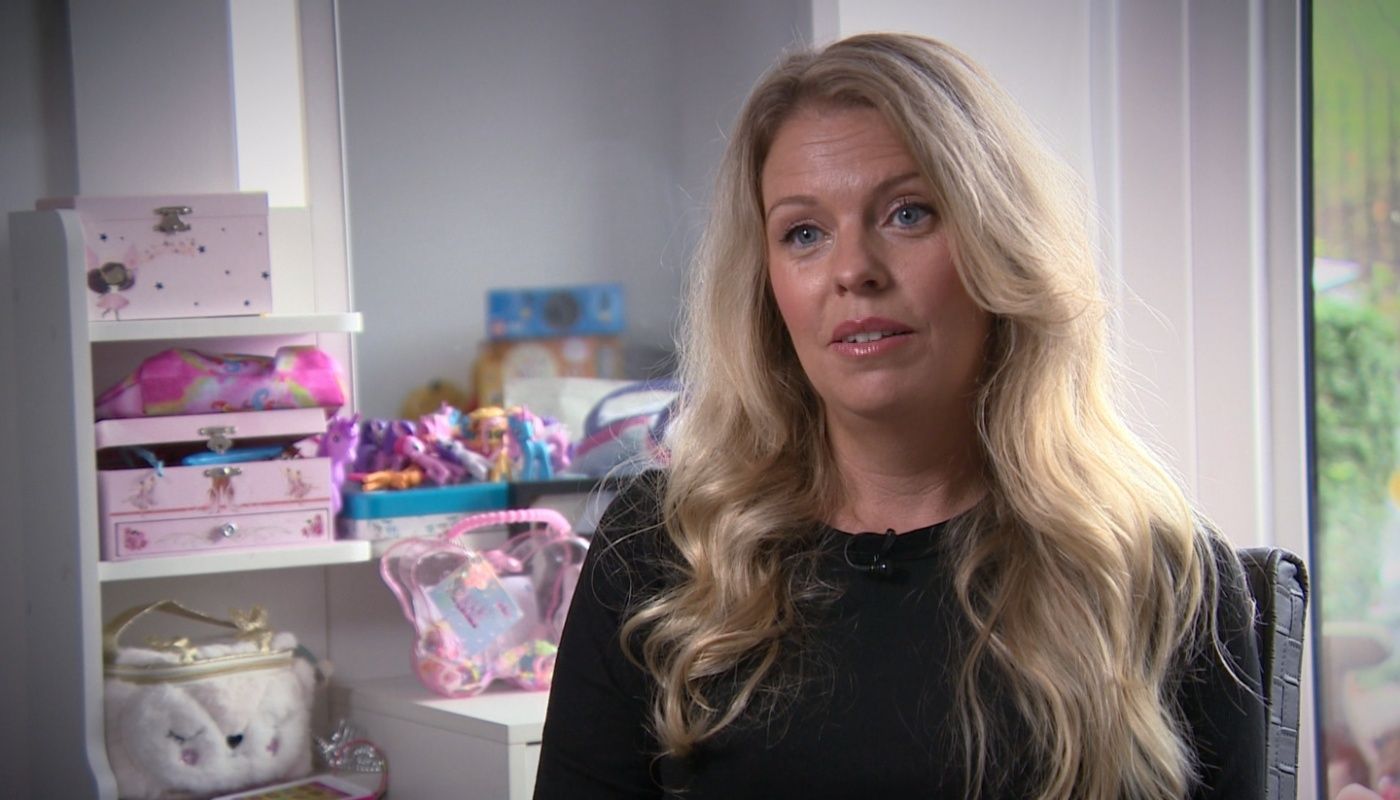 STV News
STV NewsNatalie Blue, a single mum of twins and a carer to her elderly father, is also familiar with the long waits for support.
She is currently on a waiting list for ADHD assessment, having spent most of her life feeling like there are “hundreds of tabs open in her brain at once”.
She said, “I can ignore really obvious things, like something lying on the floor. When you think, ‘We need to pick that up,’ and it’s like, I physically can’t pick it up.
“I would say my symptoms probably stayed at a level for a long time, and then perimenopause hit, and then they came screaming out.”
The idea that she may have been living with ADHD only came to light when a mum at her school drop-off suggested it to her.
“I assumed she was talking about my little boy,” she said. “But she stopped me and she said, ‘Actually it’s you yourself’.
“So I spoke to a couple of people that I know, family and friends, and asked do you think I’ve got ADHD and they said, honestly, 100% we thought you already knew that you had it.”
Natalie saw her GP and was then referred for an ADHD assessment – she was told she would likely wait 90 weeks to see a specialist.
A varied picture across the country
Scotland Tonight contacted every health board in the country via Freedom of Information request to see what waiting list lengths patients were facing in each area.
The picture is varied. There is not a standalone service that assesses people with the disorder. People are mostly referred to mental health services – which see people with a range of conditions – not just ADHD.
Meanwhile, several of the health boards told us that there is a significant shortage of resources and psychiatrists.
Dr Pavan Srireddy, a consultant in adult psychiatry for the NHS in Glasgow, shares patients’ frustrations.
He is also the vice-chair of the Royal College of Psychiatrists in Scotland and says the rise in ADHD referrals is bigger than anything he has seen in 20 years of working in psychiatry.
“Even when you look through literature and you talk to colleagues, it’s unprecedented in such a short space of time,” he said.
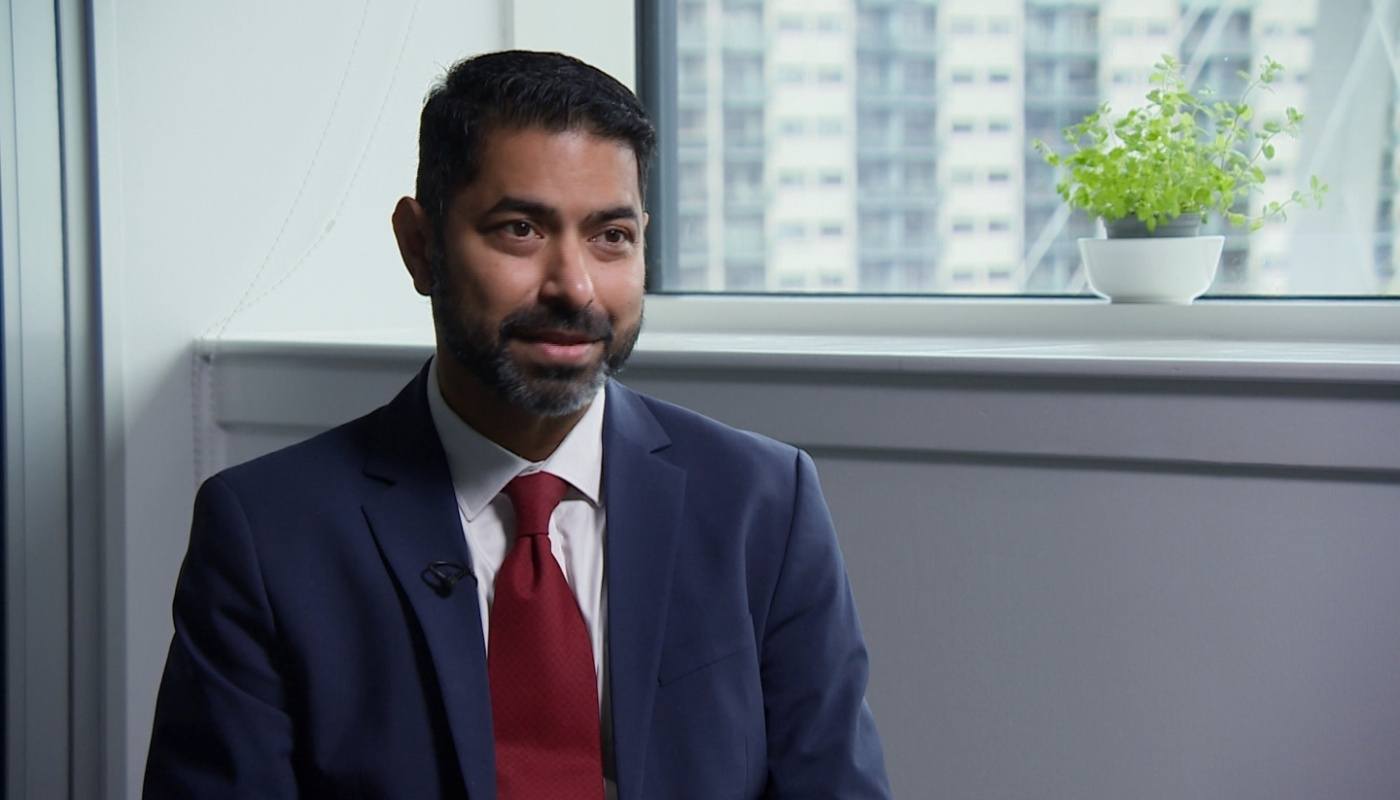 STV News
STV NewsDr Srireddy believes there needs to be one neurodevelopmental service that cares for people with ADHD.
He said: “ADHD is not a mental illness. It’s a developmental disorder. You learn to live with it. You have treatments that can reduce the impact of the symptoms on your life.
“I think it’s fundamentally wrong that people are having to pay for a service that they deserve and that they should get within the NHS.
“That’s to do with lack of shared care agreements with GPs, lack of ongoing monitoring, and that again, is hugely frustrating because people spend thousands of pounds getting a diagnosis.”
Medication shortages, which made headlines last year around the country, have improved in most areas.
However, Dr Srireddy said supply chains are still catching up with an unprecedented increase in prescription rates of 500/600%.
A social media surge
The rise in demand has, in part, been attributed to the surge in ADHD-related content on social media.
“I think greater awareness is always good,” said Dr Srireddy. “It encourages people to seek help and that is positive.
“But what we also know is that there’s a huge amount of misinformation or incorrect information. There’s a recent study that showed that over half of the information on TikTok on ADHD was inaccurate.”
Scotland Tonight reached out to TikTok and was told the platform is proud it is a place where people “can share their personal experiences of neurodiversity”.
TikTok said it takes action against medical misinformation in line with Community Guidelines.
For those like Sean and Natalie, understanding how ADHD symptoms affect their life has been transformative.
“I must say my mental health has severely improved since the diagnosis, and I’m able to take a bit of pressure off myself,” Sean said.
“There are a lot of positive things about ADHD. [We’re] very empathetic people and we’re great for a bit of advice, albeit we can’t follow it ourselves.”
The Scottish Government’s mental wellbeing minister Maree Todd said: “We know that some people are having to wait longer than they should for a diagnosis due of a combination of factors, including a significant increase in referrals.”
She added: “The Scottish Government has allocated £120m to Health Boards this year to improve the quality and delivery of mental health and psychological services for all, including neurodevelopmental services.
“Supplies of various ADHD medicines continue to be intermittent and we recognise the impact of these global shortages on people living with ADHD and their families. Anyone affected by this issue should speak to their clinical team.”
Watch the full report, Scotland Tonight: Diagnosing ADHD, at 8.30pm on STV and the STV Player.
Follow STV News on WhatsApp
Scan the QR code on your mobile device for all the latest news from around the country


